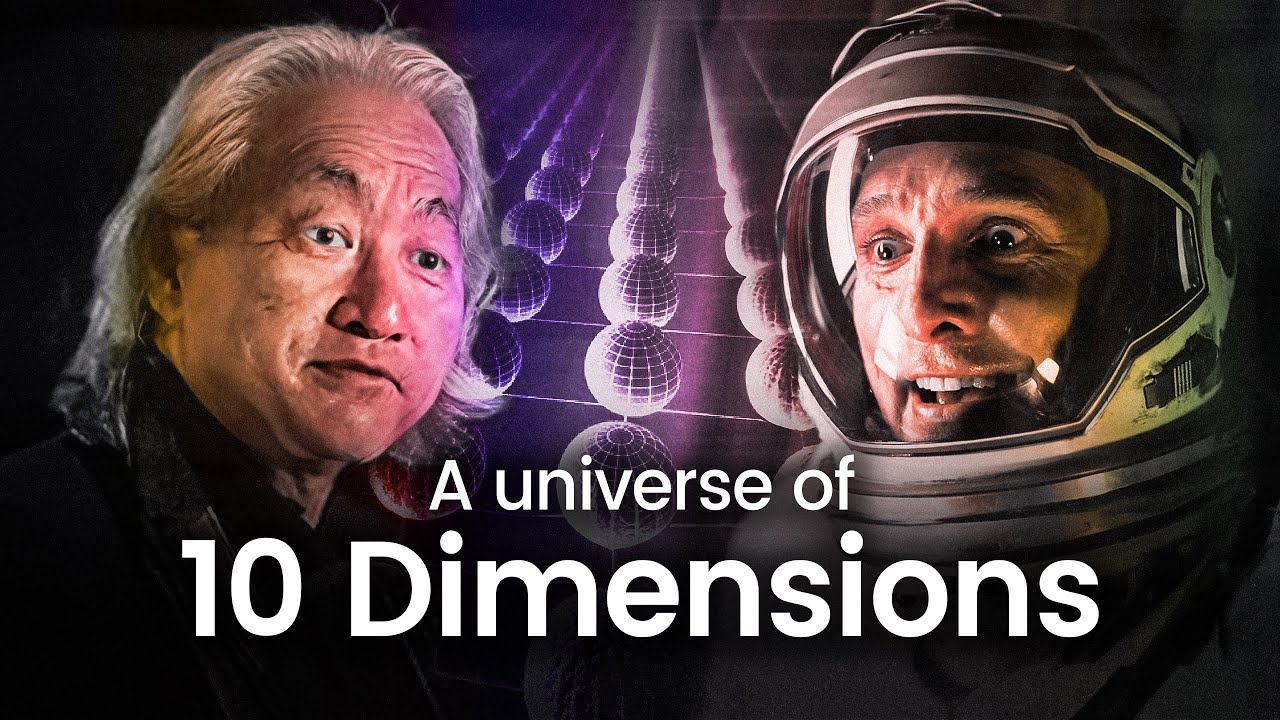A Brilliant explanation of the Eternal now.
Summary
TLDRThis script delves into the concept of time and our perception of it, particularly during sleep. It challenges the notion that the past and future are real places we can visit, arguing instead that they are constructs of the mind. The speaker suggests that we only ever experience the 'now,' which is eternal and not a moment in time. When the mind is absent, as in sleep, the illusion of time disappears, explaining why we don't perceive time while asleep. The script concludes by likening the mind to 'orange glasses' that tint our perception of reality, superimposing time and space onto the eternal 'now.'
Takeaways
- 😴 We don't experience time when we're asleep because the mind, which perceives time, is inactive during sleep.
- ⏳ The concept of 'now' is not a fraction of a moment but is eternal and ever-present, not confined to a specific duration.
- 🧠 The human mind constructs the idea of time and space, which are not inherent properties of reality but are mental constructs.
- 🌌 The past and future are vast conceptual spaces that we cannot physically visit, suggesting they may not exist as we imagine them.
- 🔄 The 'now' does not move or progress; it is a static point that we continuously experience, challenging the common perception of time as linear.
- 🤔 The existence of the past and future is uncertain as they are not directly experienced; they are constructs of our minds.
- 🕰️ Time, as we understand it, is a mental filter through which we perceive the eternal 'now', implying that time is a mental phenomenon.
- 🧐 The seeming continuity of consciousness between wakefulness and sleep is an illusion, as there is no mental experience of time during sleep.
- 🌐 Our perception of reality is limited by the mental constructs of time and space, which are like colored glasses that tint our view of the world.
- 🔮 Consciousness itself is not limited by time and space, but when viewed through the mind, it appears as if it is, much like how snow appears orange through orange sunglasses.
Q & A
Why do we lose the sense of time when we're sleeping?
-We lose the sense of time when we're sleeping because time, as we perceive it, is a mental construct that exists only when our mind is active. When we sleep, our mind is not actively perceiving or processing information, so the sense of time fades.
What is the relationship between the 'now' and the past and future?
-The 'now' is not a moment that moves through time but rather the only reality we ever experience. The past and future are mental constructs that don't exist in the same way as the 'now', which is eternal and ever-present.
Can we physically visit the past or the future?
-No, we cannot physically visit the past or the future because these are not actual places we can go to. They are concepts that our minds create to understand sequence and change.
Why do we think the past and future exist?
-We think the past and future exist because our minds create a narrative of continuity and change. This narrative helps us make sense of our experiences and anticipate future events.
What does the speaker mean when they say 'the now is eternal'?
-The speaker means that the 'now' is not a brief moment in time but a constant state of presence. 'Eternal' in this context does not mean lasting forever in time, but always being present without beginning or end.
How many 'nows' have we experienced in our lives?
-We have only ever experienced one 'now' in our lives, which is the eternal and ever-present moment that we are in at any given time.
Why does it seem like time passes when we're awake?
-Time seems to pass when we're awake because our minds are actively processing information and creating a sense of sequence and duration. This is a mental perception rather than an objective reality.
What is the role of the mind in creating the experience of time?
-The mind plays a crucial role in creating the experience of time by filtering the eternal 'now' through our perceptions, memories, and expectations, which gives us the illusion of time passing.
Why do we wake up feeling like no time has passed when we fall asleep?
-We wake up feeling like no time has passed because during sleep, our conscious mind is not actively perceiving time. Without the mind to create a sense of duration, the experience of time is absent.
How does the mind's perception of time affect our understanding of reality?
-The mind's perception of time affects our understanding of reality by imposing a linear and spatial framework onto our experience. This framework, while useful for navigation and planning, is a mental construct and not an inherent aspect of reality.
Outlines

This section is available to paid users only. Please upgrade to access this part.
Upgrade NowMindmap

This section is available to paid users only. Please upgrade to access this part.
Upgrade NowKeywords

This section is available to paid users only. Please upgrade to access this part.
Upgrade NowHighlights

This section is available to paid users only. Please upgrade to access this part.
Upgrade NowTranscripts

This section is available to paid users only. Please upgrade to access this part.
Upgrade NowBrowse More Related Video

"What If You Could Access the TENTH Dimension?" | 10D Explained

Eternity Passes into Time Through the Portal I Am

David Hume — Is there a Self?

How Time Operates in Different Dimensions — EXPLAINED

"Nothing You See is Real" | Donald Hoffman

Your Destiny is Already Written.. The Universe Wants You to Know This! [Must Watch!]
5.0 / 5 (0 votes)